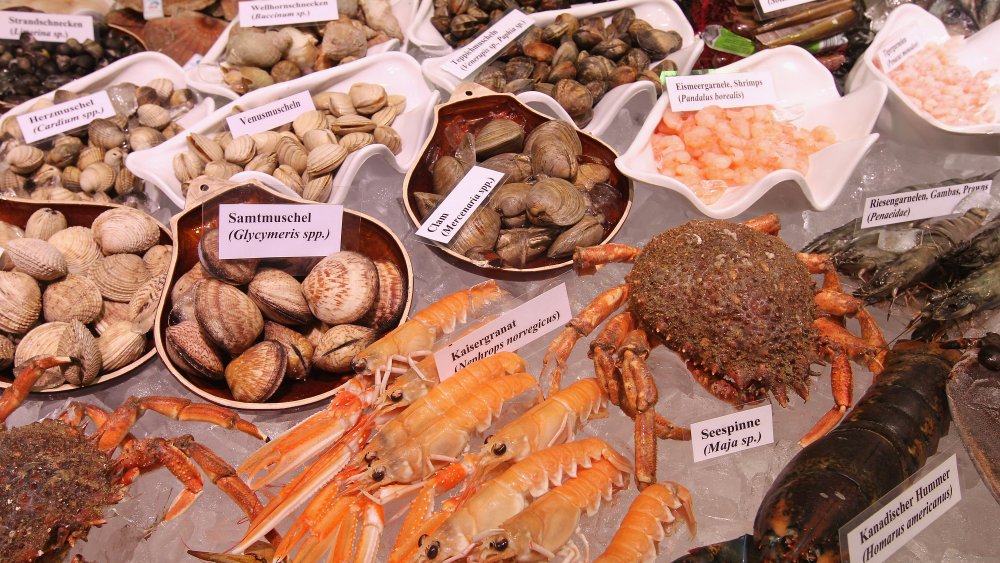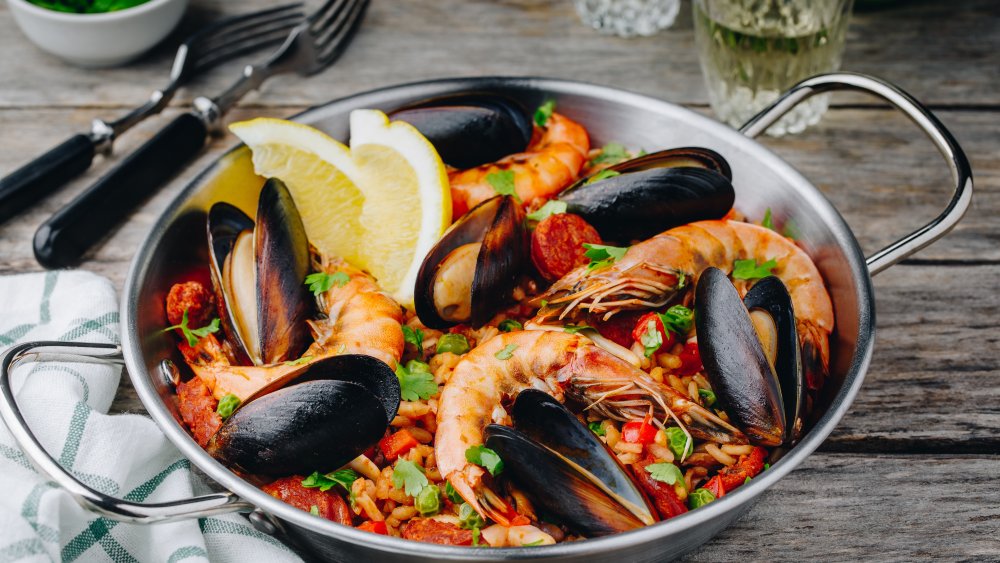When You Eat Shellfish Every Day, This Is What Happens To Your Body
We know them — and enjoy them — as shrimp, crayfish, crab, lobster, scallops, oysters and mollusks. And while science classifies them into two groups. crustaceans and mollusks, as ingredients, they are collectively known as shellfish.
Shellfish can be found in many parts of the world, either frozen, fresh, or canned, and can be eaten in a variety of ways. Most shellfish can be found in saltwater, although a few (like shrimp) live in freshwater, too. They can be steamed, baked, boiled, or fried, and depending on how they are prepared, shellfish are generally low-calorie, high-protein foods. For instance, a 3-ounce serving of lobster has 64 calories and 14 grams of protein; a similar serving of oysters contains 69 calories and 8 grams of protein; and crayfish have 65 calories and 14 grams of protein. On the higher end of the scale are shrimp with 72 calories and 17 grams of protein, as well as clams and mussels, both of which pack 73 calories per serving, with 12 and 10 grams of protein per serving respectively. By comparison, crab might seem decadent, with 74 calories and 15 grams of protein (via Healthline). As a result, eating shellfish every day would give you access to a rich source of protein.
Shellfish packs a healthy punch
Asking if shellfish is healthy is like asking if the Kardashians took a selfie today. Faye Dong, professor emerita of food science and human nutrition at the University of Illinois, tells Time: "Shellfish are high-quality protein sources — just like land animals — meaning they have all the essential amino acids." And these amino acids are the kind our bodies need to give our cells a boost and to keep our muscles in their prime.
And while they may not have as much omega-3s as a piece of salmon, for instance, shellfish are also low in saturated fat and have respectable levels of omega-3 DHA, which means eating shellfish every day gives you a solid dose of healthy fat. Aside from omega-3s, shellfish are also rich in minerals including zinc, copper, and iron — which not only help our body produce collagen and hemoglobin — these minerals also help our bodies heal faster. Plus, two oysters cover the government's RDA for zinc. This means eating shellfish every day is an easy and tasty way of giving our bodies essential fats and minerals.
Too much shellfish carries a risk
Just because shellfish is packed with all those minerals and fats that make it good for you doesn't mean it can be something you eat every day. As SFGate points out, shellfish are filter-feeders, which means they filter water through their gills in order to get what they need in terms of food and nutrition. As a result, the cleanliness and toxicity of your shellfish is dependent to the area it is grown and raised in. If shellfish is raised in water that's been contaminated by toxins, like pesticides, that's bound to be in the food you consume, too.
And then there's the important issue of mercury. This metal is toxic to humans, but it also occurs naturally in just about every type of shellfish. So if you really want to enjoy shellfish every day, you'd need to keep your quantities down to 12 ounces total per week to avoid building up mercury in your system. The World Health Organization warns that mercury, even in small amounts, is toxic and can harm the nervous, digestive, and immune systems. It is especially lethal for unborn babies and small children.
The signs of a shellfish allergy
If you have a shellfish or seafood allergy, having shellfish everyday is a definite no-no. Allergies happen when your body's immune system reacts to the proteins in the mollusk or crustacean. You could either get a mild reaction, like itchy hives or symptoms that mimic the common cold, in which case you may not even be aware that you have an allergy. There are also more serious symptoms, such as having trouble breathing, abdominal pains, nausea, or vomiting (via Mayo Clinic).
Anna Feldweg, a clinical instructor of medicine at Harvard Medical School, tells Everyday Health that if you do suffer from seafood allergies, you should avoid it at all cost. You can also choose to work with a specialist to determine what kind of foods your body might react to and what types you might be able to eat.



